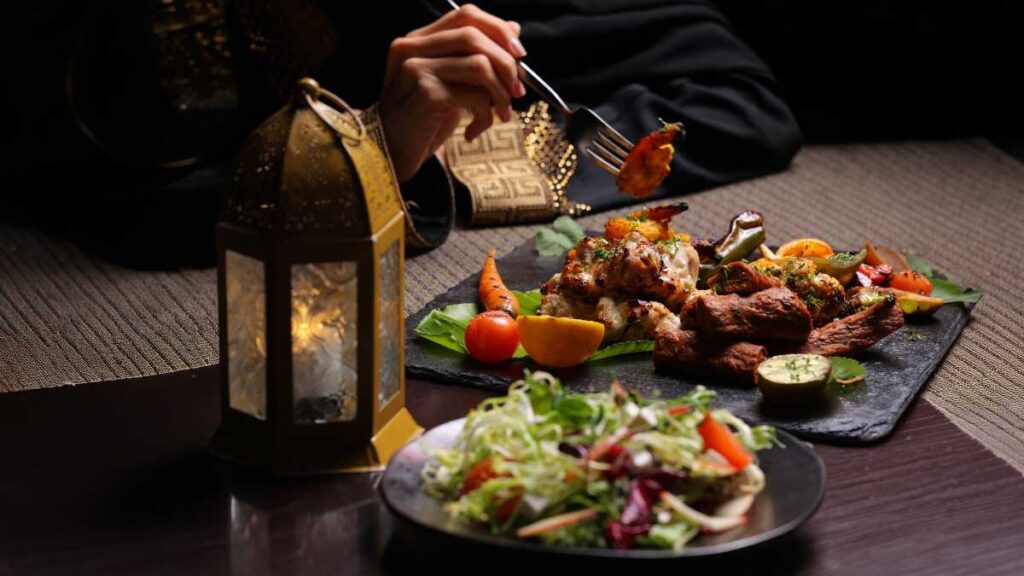Traveling to Dubai in 2026 means entering one of the most digitally advanced cities in the world. Everything moves fast. Reservations, rides, rooms, receipts—each one ping-pongs through servers miles away. We no longer stand in lines; we stare at spinning wheels. Our wires are tight, friends—and the bill is our privacy. Hit the road, but lock your phone down first—your secrets ride with you. Picture yourself sitting in a café down-route in Hanoi. Scan emails, refuse shady links, encrypt a folder today; these tiny decisions guard your future self—and your memories—from disappearing. One fake hotel login and they’ve cloned your phone. Good luck unmixing from that mess at 35,000 feet, right? And once data leaves your device, it often doesn’t return.
Understanding Digital Privacy in Dubai
Tough cyber laws hover over every text, tweet, and search in Dubai. Break them and you’ll learn fast there’s no sliding scale. Laws give us a shield, but free airport Wi-Fi is like leaving your diary on the subway seat—still smart to peek over your shoulder before you log in. Airports, cafés, malls, hotels, even subway tunnels—they all dangle quick, free Wi-Fi like a neon sign screaming, “Stick around!” Loads of them keep their doors unlocked, shared with anyone, and one click away from chaos.
In 2025, cybersecurity researchers estimated that more than 60 percent of public hotspots in major travel destinations had weak encryption or outdated security protocols. The percentage may shift in 2026, but the principle stays the same: unsecured Wi-Fi creates opportunities for data interception.
To reduce these risks, many travelers use privacy tools. Many cite VeePN as the best UAE VPN today. It offers encryption and blocks unauthorized monitoring. This is especially useful when logging into banking applications, airline accounts, healthcare portals, or accommodation platforms.
Safe Browsing While Traveling: The Essentials
Dubai’s got lightning-fast Wi-Fi on every corner, but an easy log-in can still hand your secrets to strangers. Begin with the easy one—rule one couldn’t be simpler. Avoid unsecured Wi-Fi whenever possible. If you must use a public network, do not access financial accounts or transmit personal documents. You can also shut the door on snoopy advertisers by turning off online tracking. The moment you land, pages log your zip code, your hopping path, and the fingerprint of the very gadget in your hand. Innocent pings land harmlessly, but stack enough together and strangers know your bedtime snack and shoe size.
Using a VPN for Dubai travel is a well-known method for encrypting traffic, increasing anonymity. VeePN can also reduce the amount of data bots collect about users. This allows you to regain control of your privacy in a world of constant surveillance.
Don’t skip private windows. Imagine handing your phone to a buddy; hidden tabs keep your secrets, open tabs ruin the plot—hit Ctrl-Shift-N first. Incognito stops your little brother from seeing what you watched, but the Feds can still knock. It tosses cookies and history in the trash so the next person on the couch sees a clean slate. Tiny detail, big payoff: it shields your stuff when you share rooms or lean over the lobby printer.
Protecting Mobile Devices and Passport Information
Mobile devices are the primary target for data theft during international trips. Statistics from global cybersecurity agencies show that more than 70 percent of digital incidents reported by travelers involve smartphones. The reason is simple: people carry them everywhere, connect to many networks, and store passport photos, boarding passes, identity documents, banking details, and hotel codes. This means one compromised device can expose nearly the traveler’s entire digital identity.
To protect mobile devices effectively:
- Enable full-device encryption. Most modern phones have this function by default, but it should be checked before the trip.
- Use strong screen-lock methods. Avoid predictable patterns.
- Disable automatic Wi-Fi connections. Manual connection ensures you know exactly which network you are joining.
- Install system updates before departure. Outdated operating systems contain vulnerabilities that attackers can exploit.
- Backup your data. If the device is lost or damaged, you still have access to what matters.
Safeguarding passport information deserves a separate note. Never share passport scans through unsecured channels. Do not store them in unprotected photo galleries. Always keep digital copies in encrypted storage or password-protected cloud folders. This matters because identity fraud remains one of the fastest-growing cybercrimes affecting travelers.
Staying Safe on Public Networks
When you join a public network in Dubai—whether in a luxury hotel or a small café—you share bandwidth with dozens or even hundreds of strangers. Half the planet googles tomorrow’s weather and—nothing else happens. Snoopers might grab your data while it zips past on the wire. Quick checklist, friend: flick your phone VPN, tell sites HTTPS-only, switch autoconnect to OFF in settings. Those three taps cut eighty-plus risks while sipping latte on shared bandwidth networks wherever you travel or stay.
- Turn off file-sharing features.
- If an app won’t scramble your data, drop it—there’s safer stuff out there.
- Prefer websites that use HTTPS.
- Finished? Close the tab and nuke the session—your future self won’t have to fight mystery charges.
- Say no when the browser begs to remember. On machines that crash or switch owners nightly, that tiny click is a neon “Come grab my stuff” sign.
Don’t yawn—these plain-Jane rules slam the door on the goofs that wreck companies every week.
Why Cybersecurity Awareness Matters in 2026
By 2026, your phone, fridge, and even sneakers will be online and swapping data faster than group chat memes on a Friday night. Dubai slips robot helpers, selfie-check-ins, palm-reading kiosks and smart bots into every part of your vacation, from airport e-gates to hotel elevators. Personal files stop being boring paperwork; once big models can eat them, prices leap sky-high and you become the most crowded booth at the fair. Crooks move faster than software patches, pouncing the second you reuse a tired password or skip that two-step check. Skip the cyber safety talk and your vacation photos—and your bank account—could land in a hacker’s lap. It is a core part of responsible, modern travel.
Knowing what’s going on calms your brain—no guessing, no panic. Lock down your data—scramble your signal, skip the sketchy café Wi-Fi, and boom, the whole trip feels like less hassle. They’re free to catch a ballgame, hit a pop-up art show, or close a deal downtown—no glitchy pop-ups or phone-scare following them around. Build tough rules around your data, and the internet smells familiar—cookies ask politely, your phone quits spewing, pages arrive where you expect.
Conclusion: Travel Smart, Travel Safe
Digital privacy in Dubai is achievable for every traveler willing to take a few practical steps. The tools exist, the knowledge is accessible, and the habits are easy to practice. By understanding risks, adopting safe browsing while traveling, protecting mobile devices, preventing online tracking and securing communication channels, visitors can protect personal data abroad and experience Dubai with confidence. In 2026, cybersecurity is not a technical concern; it is a daily travel companion.









